- Home
- Blake Crouch
Wayward (The Wayward Pines Trilogy, Book 2) Page 3
Wayward (The Wayward Pines Trilogy, Book 2) Read online
Page 3
Fingers gliding through her long blond hair.
“I was thinking,” she said.
“Yeah?”
“Ben won’t be home from Matthew’s for another hour.”
“Is that right?”
She took Ethan by the hand and pulled him toward the staircase.
“You sure?” he asked. They’d only been together twice in the two weeks since their reunion, both times in Ethan’s favorite chair in the study, Theresa sitting in his lap, his hands on her hips—an awkward entanglement.
“I want you,” she said.
“Let’s go in the study.”
“No,” she said. “Our bed.”
He followed her up the steps and down the second-floor hallway, the hardwood groaning under their footfalls.
They stumbled kissing into the bedroom, their hands all over each other, Ethan trying to ground himself in the moment, but he couldn’t push the cameras out of his mind.
One behind the thermostat on the wall beside the bathroom door.
One in the light fixture in the ceiling looking straight down on their bed.
He was hesitating, conflicted, and Theresa sensed it.
“What’s wrong, baby?” she asked.
“Nothing.”
They were standing beside the bed.
Out the window, the lights of Pines were coming on—streetlamps, porch lights, houselights.
A cricket started up, its chirping sliding through the open window.
Quintessential sound of a peaceful night.
Only it wasn’t real. There were no crickets anymore. The sound came from a tiny speaker hidden in a bush. He wondered if his wife knew that. Wondered how much of the truth she suspected.
“Do you want me?” Theresa asked in that no-bullshit tone he’d fallen for the first time they’d met.
“Of course I do.”
“So do something about it.”
He took his time unbuttoning the back of her white summer dress. Badly out of practice, but there was something wonderfully terrifying because of the rust. Not like high school, but close. A lack of control that had him hard before they’d even made it into the room.
He tried to pull the covers over them but she wouldn’t have it. Told him she wanted to feel the cool breeze coming through the window across the surface of her skin.
It was a good old-fashioned bed and, like the rest of the house, creaky as hell.
The bedsprings squeaked and as Theresa moaned Ethan tried to put the knowledge of the camera above them out of his mind. Pilcher had assured him that watching couples in their private moments was strictly forbidden. That camera feeds were always killed when the clothes came off.
But Ethan wondered if that was true.
Or if some surveillance tech was watching as he fucked his wife. Studying Ethan’s bare ass. The bend of Theresa’s legs as they wrapped around his body.
Their first two times together, Ethan had come before Theresa. Now the thought of the camera above him cut into the pleasure. He used the anger to make himself last.
Theresa came with a vengeance that reminded Ethan of how good they could be together.
He let himself finish and then they were still. Breathless and he could feel her heart jackhammering against his ribs. The evening air almost cold where it grazed his sweaty skin. It might’ve been a perfect moment but the knowledge of everything elbowed in. Would he reach the point one day when he could shut that off? Just take these unexpected respites of peace for their surface beauty and forget the underlying horror? Was that how people managed to live here for years without losing their minds?
“So we can still do that,” he said, and they laughed.
“Next time we’ll take off the training wheels,” she said.
“I like the sound of that.”
He rolled over and Theresa curled into him.
Ethan made sure her eyes were closed.
Then he smiled straight up at the ceiling and raised his middle finger.
Ethan and Theresa worked on dinner together, chopping side by side on the butcher-block counter.
It was harvest time in the community gardens, the end of the season, and the Burkes’ fridge was loaded down with their share of fresh veggies and fruit. These were, without a doubt, the prime eating months of the year in Wayward Pines. Once the leaves had been burnt with frost and the snowline had begun its rapid descent to the valley floor, the food took a disastrous turn for the freeze-dried. October through March, they could look forward to six months of prepackaged, dehydrated shit. Theresa had already warned Ethan that walking through the town grocery in December was like shopping for a space mission—nothing but shelf after shelf of chrome-colored packaging labeled with the most outrageous dares: crème brûlée; grilled-cheese sandwich; filet mignon; lobster tail. She’d already threatened to serve him freeze-dried steak and lobster for their Christmas dinner.
They had just finished preparing the hearty salad—onions, radishes, and raspberries over a bed of spinach and red lettuce—when Ben crashed through the front door, rouge-cheeked, smelling of boy-sweat and the outdoors.
Still caught in that delicate blink of time between boy and man.
Theresa went to her son and kissed him and asked about his day.
Ethan turned on the vintage Philips—a tube radio from the 1950s in immaculate condition. Pilcher had inexplicably put one in every inhabited house.
Surfing was easy with one station to choose from. Most of the time, it just blared static, but there were one or two talk shows, and always, between seven and eight o’clock, “Dinner with Hecter.”
Hecter Gaither had been a moderately famous concert pianist in his past life.
In Pines, he taught lessons to anyone who wanted to learn, and every night of the week, played music for the town.
Ethan turned up the volume, heard Hecter’s voice as he joined his family.
“Good evening, Wayward Pines. Hecter Gaither here.”
At the head of the table, Ethan dished out servings of their salad.
“I’m sitting at my Steinway, a gorgeous Boston Baby Grand.”
First to his wife.
“Tonight, I’ll be playing the Goldberg Variations, a work originally composed for harpsichord by Johann Sebastian Bach.”
Then to his son.
“The construction of this piece is an aria followed by thirty variations. Please enjoy.”
As Ethan served himself and took a seat, he heard the creak of the piano bench come crackling through the speaker.
After dinner, the Burkes took bowls of homemade ice cream out onto the porch.
Sat in rocking chairs.
Eating and listening.
Through the open windows of the neighboring houses, Ethan could hear Hecter’s music.
It filled the valley.
Precise and radiant notes bubbling up between the mountain walls that had become ruddy with alpenglow.
They stayed out late.
A millennium without air or light pollution made for pitch-black skies.
The stars didn’t just appear anymore.
They exploded.
Diamonds on black velvet.
You couldn’t tear your eyes away.
Ethan reached over and held Theresa’s hand.
Bach and galaxies.
The night grew cool.
When Hecter finished, people clapped inside their homes.
Across the street, a man shouted, “Bravo! Bravo!”
Ethan looked over at Theresa.
Her eyes were wet.
He said, “You okay?”
She nodded, wiping her face. “I’m just so glad to have you home.”
Ethan finished the dishes, headed upstairs. Ben’s room was at the far end of the hall and the door was closed—just a razor line of light visible underneath.
Ethan knocked.
“Come in.”
Ben was sitting up in bed sketching—charcoal on butcher paper.
Ethan eased do
wn on the comforter, asked, “Can I take a look?”
Ben lifted his arms.
The sketch was the boy’s current vantage point from the bed—the wall, the desk, the window frame, the points of light outside which were visible through the glass.
“That’s amazing,” Ethan said.
“It’s not exactly like I want it. The night through the window doesn’t really look like night.”
“I’m sure it’ll get there. Hey, I picked up a book from the coffee shop today.”
Ben perked up. “What is it?”
“It’s called The Hobbit.”
“I never heard of it.”
“It was one of my favorite books when I was your age. I thought maybe I could read it to you.”
“I know how to read, Dad.”
“I know. But I haven’t read this in years. Might be fun to read it together.”
“Is it scary?”
“It has some scary parts. Go brush your teeth and hurry back.”
Ethan sat against the headboard, reading by the light of a bedside table lamp.
Ben was asleep before the end of the first chapter, dreaming, Ethan hoped, of dungeons deep and caverns old. Of something other than Wayward Pines.
Ethan set the paperback aside and cut the lamp.
Pulled the blanket up to his son’s shoulders.
He laid his hand down against Ben’s back.
Nothing better in the world than feeling the rise and fall of his child’s sleeping respirations.
Ethan had still not recovered from his son growing up in Wayward Pines. Doubted it was something he would ever accept. There were small things which he tried to tell himself were better. Tonight for instance. Had Ben grown up in the old world, Ethan would probably have entered his son’s bedroom to find him glued to an iPhone.
Texting friends.
Watching television.
Playing video games.
Twitter and Facebook.
Ethan didn’t miss those things. Didn’t wish that his son was growing up in a world where people stared at screens all day. Where communication had devolved into the tapping of tiny letters and humanity lived by and large for the endorphin kick from the ping of a received text or a new e-mail.
Instead, he’d found his almost-teenage son passing his time before bed by sketching.
Hard to feel bad about that.
But it was the years to come that weighed down on Ethan’s heart with the black pressure of depression.
What did Ben have to look forward to?
There would be no higher learning. No real career.
Gone were the days of—
You can be whatever you want to be.
Whatever you set your mind to.
Just follow your heart and your dreams.
Golden-age platitudes of an extinct species.
When people failed to pair up on their own, marriages in Pines were often suggested. And even when they weren’t, the pool of potential mates wasn’t exactly deep.
Ben would never see Paris.
Or Yellowstone.
Might never fall in love.
He would never have the experience of going away to college.
Or on a honeymoon.
Or driving across the country nonstop, spur-of-the-moment, just because he was twenty-two and could.
Ethan hated the surveillance and the abbies and Pines’s culture of illusion.
But what kept him up with his mind racing late into the night were thoughts of his son. Ben had lived in Pines for five years, almost as long as he’d lived in the world before. Whereas Ethan suspected that the adult residents of Pines struggled every day with the memory of their past lives, Ben was very much a product of this town, of this strange, new time. Not even Ethan was privy to the things his son was being taught in school. Pilcher kept a pair of his men in plainclothes on school property at all times, and parents weren’t allowed inside.
3:30 a.m.
Ethan lay awake in his bed, his wife in his arms.
Miles from sleep.
He could feel Theresa’s eyelashes scraping against his chest with each blink.
What are you thinking?
The question had haunted their marriage before, but in Pines it had assumed an entirely new gravity. In the fourteen days they’d been together, Theresa had never broken the surface illusion. Of course, she had welcomed Ethan back home. There’d been a tearful reunion, but five years as a resident of Pines had made her a stone-cold pro. There was no talk of where Ethan had been or of his tumultuous integration. No mention or discussion of the strange events surrounding his becoming sheriff. Or what he might now know. Sometimes, he thought he caught a glint of something in Theresa’s eyes—an acknowledgment of their circumstance, a suppressed desire to communicate on a forbidden level. But like a good actor, she never broke character.
More and more, he was coming to realize that living in Pines was like living in an elaborate play whose curtain never closed.
Everyone had their parts.
Shakespeare could have been writing about Pines: All the world’s a stage, and all the men and women merely players. They have their exits and their entrances; and one man in his time plays many parts.
Ethan had already played a few of his own.
Downstairs, the telephone was ringing.
Theresa sat straight up as if she’d been spring-loaded, no sign of bleariness, snapped instantly to attention, her face gone tight with fear.
“Is it everyone’s phone?” she asked, her voice filled with dread.
Ethan climbed out of bed.
“No, honey. Go back to sleep. It’s just ours. It’s just for me.”
Ethan caught it on the sixth ring, standing in his boxers in the living room, the rotary phone clutched between his shoulder and his ear.
“For a moment, I wondered if you were going to answer.”
Pilcher’s voice. He’d never called Ethan at home before.
“Do you know what time it is?” Ethan said.
“Terribly sorry to have woken you. Did you get a chance to read the surveillance report on Peter McCall?”
“Yeah,” Ethan lied.
“But you didn’t go and talk with him like I suggested, did you?”
“I was planning to first thing tomorrow.”
“Don’t bother. He’s decided to take his leave of us tonight.”
“He’s outside?”
“Yeah.”
“So maybe he went for a walk.”
“Thirty seconds ago, his signal reached the curve in the road at the end of town and kept right on heading south.”
“What do you want me to do?”
There was a beat of silence on the other end of the line. Somehow, Ethan could feel the frustration coming through like a heat lamp.
Pilcher said evenly, “Stop him. Talk some sense into him.”
“But I don’t know exactly what you want me to say.”
“I realize this is your first runner. Don’t worry about what to say. Just trust your gut. I’ll be listening.”
Listening?
A dial tone blared in Ethan’s ear.
He crept upstairs and dressed in the darkness. Theresa was still awake, sitting up in bed and watching as he threaded his belt through the loops.
“Everything okay, honey?” she asked.
“Fine,” Ethan said. “Work stuff.”
Yeah, just have to stop one of our neighbors from trying to leave our little slice of paradise in the middle of the night. No big deal. Nothing weird here.
Ethan walked over and kissed his wife on the forehead.
“I’ll be back as soon as I can. Hopefully before morning.”
She didn’t say anything, only grabbed his hand and squeezed hard enough to move the bones.
Nighttime in Wayward Pines.
A wonderland of stillness.
The crickets turned off.
So quiet Ethan could hear the streetlamps humming.
The pounding of hi
s own biologic engine.
He walked down to the curb and climbed into the black Ford Bronco with a light bar across the roof and, on the doors, the exact WP emblem that was engraved on his sheriff’s star.
The engine gargled.
Ethan shifted into gear.
Tried to pull gently out into the street, but the 4.9-liter straight six had been bored out and was loud as hell.
The noise would undoubtedly wake people.
Cars were rarely driven in Pines—you could cross town on foot in fifteen minutes.
Cars were never driven in Pines at night.
Their purpose was decorative, and anyone whose slumber was disturbed by the roar of Ethan’s Bronco would know that something had come off the rails.
He turned onto Main and headed south.
After the hospital, he hit the high beams and pushed the gas pedal into the floor, accelerating into a narrow corridor of tall pines.
With the window down, the cold forest air streamed in.
He drove down the middle of the road, tires straddling the double yellow.
Imagining there was no turn coming, that soon the road would begin to climb.
Out of this valley, away from this town.
He would reach down and turn on the radio, surf the airwaves until he found a station that played the oldies. It would be a three-hour trip back to Boise. Nothing like driving on an open road at night with the windows down and good music blasting. It was only for a split second, but he caught the feeling of living in a world full of others like him. A nightscape light-ridden with the glow of great cities. The distant roar of interstate traffic and jets thundering through the stratosphere.
The sense of not being so goddamn alone.
The endlings of their species, of humanity.
The speedometer needle edged toward seventy, the engine screaming.
He’d already blown past the sharp curve ahead sign.
Ethan stomped on the brake and lurched forward as the Bronco skidded to a stop in the vertex of the curve. He pulled over onto the shoulder, killed the engine, climbed out.
Soles of his boots scraping across the pavement.
For a moment, he hesitated with the door open, staring at the Winchester ’97 cradled in the gun rack above the seats. He didn’t want to take it for the message it might send to McCall. He didn’t want to leave it, because these were dark and scary woods and the world they bordered hostile beyond reckoning. There had never been a fence breach to his knowledge, but there was a first time for everything, and being out in these trees in the middle of the night unarmed was just taunting Murphy’s Law.

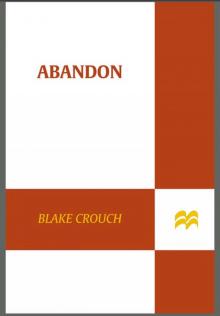 Abandon
Abandon Break You
Break You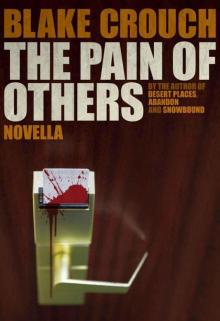 The Pain of Others
The Pain of Others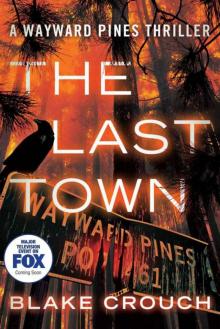 The Last Town
The Last Town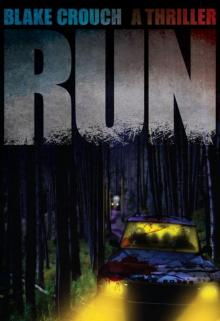 Run
Run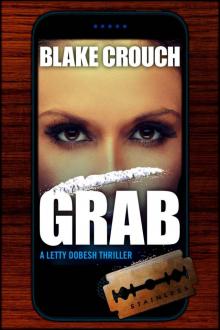 Grab
Grab Four Live Rounds
Four Live Rounds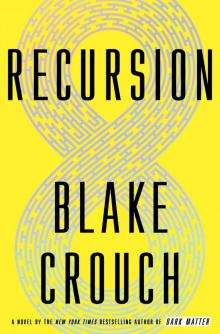 Recursion
Recursion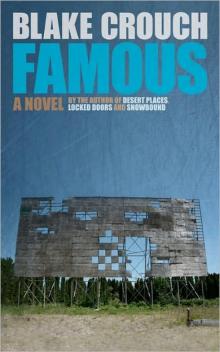 LUMINOUS BLUE: A Novel of Warped Celebrity
LUMINOUS BLUE: A Novel of Warped Celebrity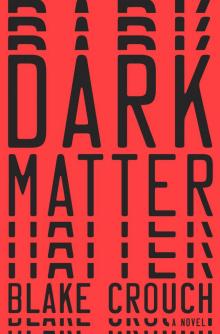 Dark Matter
Dark Matter Desert Places
Desert Places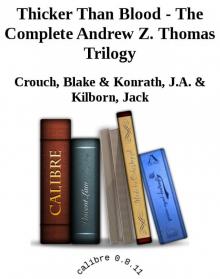 Thicker Than Blood - the Complete Andrew Z. Thomas Series
Thicker Than Blood - the Complete Andrew Z. Thomas Series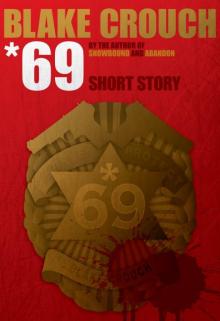 *69
*69 Locked Doors
Locked Doors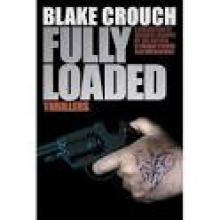 Fully Loaded Thrillers
Fully Loaded Thrillers![Summer Frost [Forward Collection] Read online](http://i1.bookreadfree.com/02/summer_frost_forward_collection_preview.jpg) Summer Frost [Forward Collection]
Summer Frost [Forward Collection]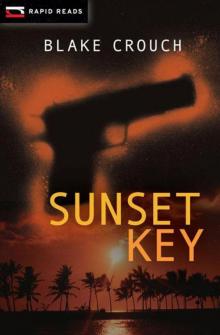 Sunset Key
Sunset Key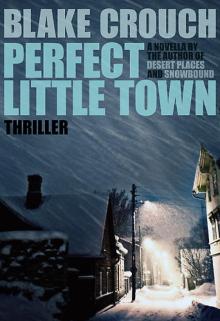 Perfect Little Town
Perfect Little Town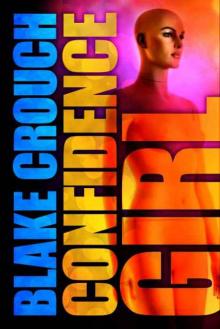 Confidence Girl
Confidence Girl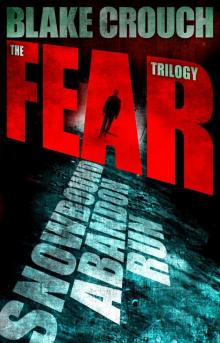 The Fear Trilogy
The Fear Trilogy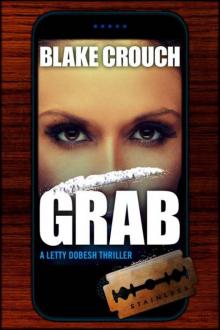 Grab ldm-3
Grab ldm-3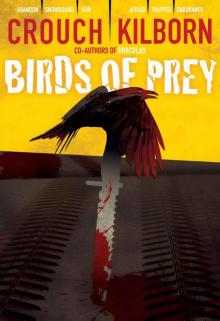 BIRDS OF PREY - A Psycho Thriller
BIRDS OF PREY - A Psycho Thriller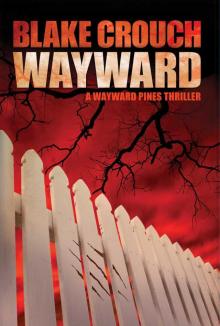 Wayward (The Wayward Pines Series, Book Two)
Wayward (The Wayward Pines Series, Book Two) Hunting Season: A Love Story
Hunting Season: A Love Story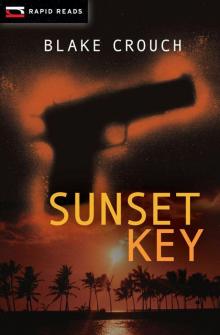 Sunset Key (Rapid Reads)
Sunset Key (Rapid Reads) Desert Places: a Novel of Terror
Desert Places: a Novel of Terror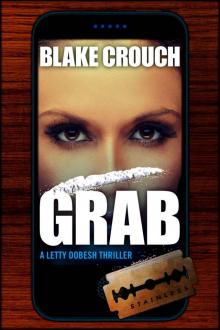 Grab (Letty Dobesh #3)
Grab (Letty Dobesh #3)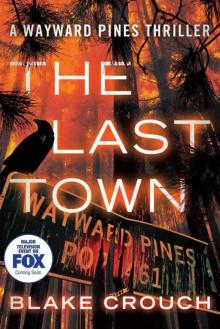 The Last Town (The Wayward Pines Trilogy 3)
The Last Town (The Wayward Pines Trilogy 3) LOCKED DOORS: A Novel of Terror (Andrew Z. Thomas Thriller)
LOCKED DOORS: A Novel of Terror (Andrew Z. Thomas Thriller) BREAK YOU: A Novella of Terror (Prequel to Stirred) (Andrew Z. Thomas/Luther Kite)
BREAK YOU: A Novella of Terror (Prequel to Stirred) (Andrew Z. Thomas/Luther Kite)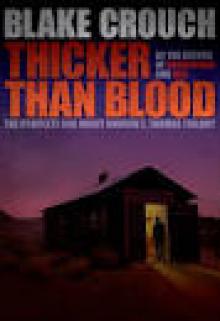 Thicker Than Blood - The Complete Andrew Z. Thomas Trilogy
Thicker Than Blood - The Complete Andrew Z. Thomas Trilogy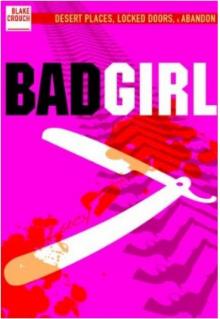 Bad Girl
Bad Girl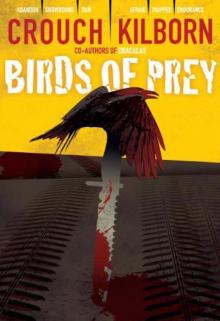 Birds of Prey
Birds of Prey SERIAL KILLERS UNCUT - The Complete Psycho Thriller (The Complete Epic)
SERIAL KILLERS UNCUT - The Complete Psycho Thriller (The Complete Epic)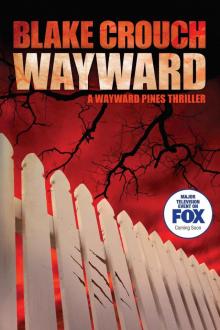 Wayward (The Wayward Pines Trilogy, Book 2)
Wayward (The Wayward Pines Trilogy, Book 2)